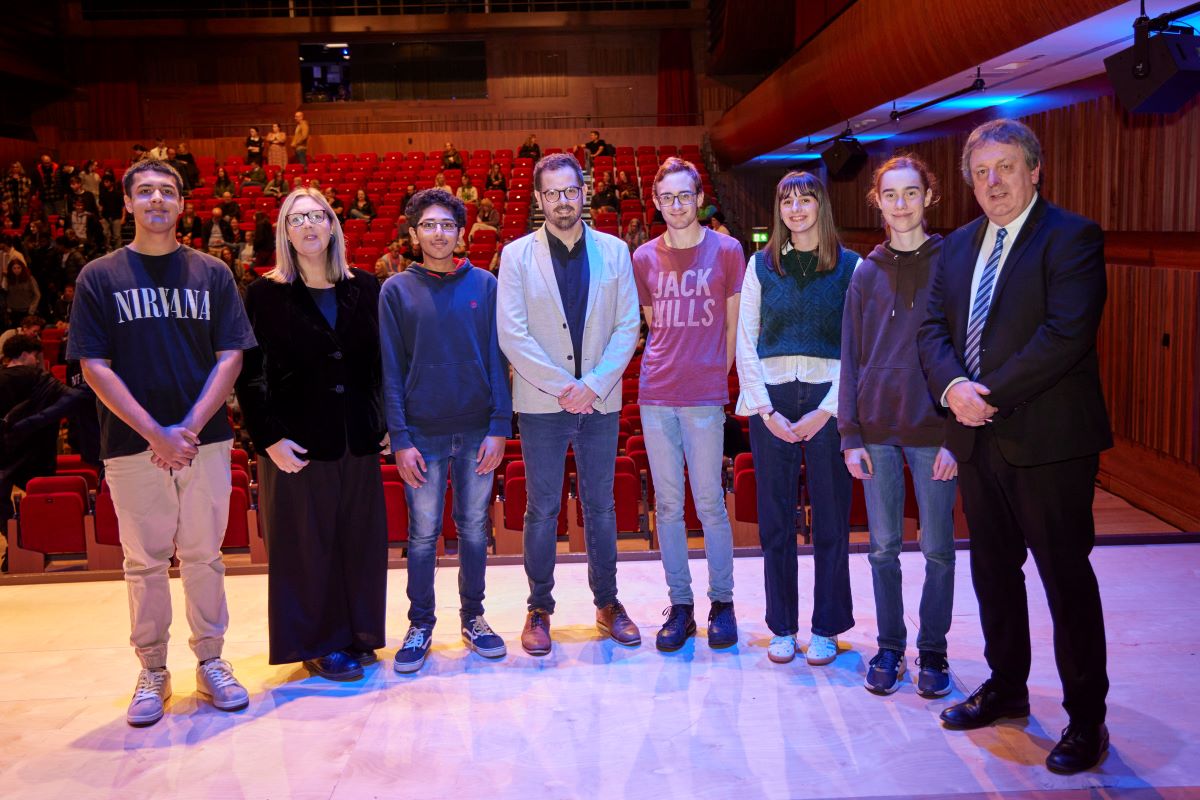Small group tuition has an average impact of four months’ additional progress over the course of a year

12th Feb 2021: Online tutoring pilot to test how effectively disadvantaged students can be reached through online tutoring during the period of Covid-19 school closures.
The National Online Tuition Pilot aimed to support disadvantaged pupils by providing fully subsidised tuition during the summer of 2020, during and following the Covid-19 school ‘closures’. The pilot was delivered by four established tutoring organisations (Action Tutoring, MyTutor, The Access Project and Tutor Trust) and reached 1,425 learners in 65 schools. In total, over 9,800 tuition sessions were delivered between 15 June and 28 October 2020.
This pilot was a collaboration between the EEF, Impetus, The Sutton Trust and Nesta. It was co-funded by the EEF, alongside Wellcome Trust, Paul Hamlyn Foundation, the Hg Foundation, Porticus UK, the Dulverton Trust, the Inflexion Foundation and other funders. The aim of the pilot was to establish the feasibility of supporting disadvantaged pupils through online tuition during the 2020 school closures.
Overall, the evaluation of the pilot found that delivering online tuition during partial school ‘closures’ was feasible. Learners enjoyed the tuition and there were perceived benefits for learning.Relationships were crucial in supporting take-up andengagement,and investing time in building rapport helped tutors to motivate learners and tailor the support
Access to equipment and reliable internet connections were key barriers to participation, particularly for home-based learners. Online tuition did lack some of the benefits of in-person delivery, and tutors found it more challenging to build rapport with learners online, wheretechnical challenges risked disrupting delivery.
THE NATIONAL ONLINE TUITION PILOT REPORT
Evaluation Conclusions
- Delivering online tuition during the school ‘closures’ was feasible. Reach was high considering the circumstances and providers, schools, tutors, and learners quickly adapted to what was a new learning model for most.
- Learners enjoyed the tuition and there were perceived benefits for learning. All stakeholder groups felt that learners benefited from the tailored support. They saw improvements in learners’ confidence, engagement with education, and preparedness for the new school year.
- Relationships were crucial in supporting take-up and engagement. Investing time in building rapport helped tutors to motivate learners and tailor the support. Providers and school staff worked to identify the best ways to secure parents’ and learners’ buy-in, but were unable to reach all families during the school ‘closures’.
- Access to equipment and reliable internet connections were key barriers to participation, particularly for home-based learners. Solutions included providing equipment and inviting learners to take part at school.
- Online tuition lacked some of the benefits of in-person delivery. While the offer of online tuition was highly attractive during the Covid-19 pandemic, most learners would prefer in-person tutoring if given the choice. Tutors found it more challenging to build rapport with learners online and technical challenges risked disrupting delivery.
National Tutoring Programme: £350 million to cover two academic years, not one
1st Dec 2020: Commenting on reports that the Government is breaking its promise to invest £350million in the National Tutoring Programme in the academic year 2020/21, covering two years of tutoring instead,

Wes Streeting MP, Labour’s Shadow Schools Minister, said:
“Yet again this government is failing to deliver on its promises which will exacerbate an attainment gap that was widening even before the pandemic. Urgent investment is needed in catch-up learning, alongside support to keep schools open and ensure children self-isolating have access to laptops to enable them learn remotely.
“The Conservatives’ approach is holding children’s education back and without urgent action children’s learning will be permanently damaged by this pandemic.”
National Tutoring Programme: Online Tutoring Helped Disadvantaged Pupils During Lockdown

21st Oct 2020: Online tutoring can be a powerful tool to help children affected by school closures, according to initial findings from a study (21 Oct) of over 1,000 primary and secondary school pupils.
Nine in ten children say tutoring helps them feel more confident with their schoolwork. Children say what they particularly like about tutoring is the one-to-one support for issues they are struggling with, the reduced fear of peer judgment and the flexibility to learn at their own pace.
In the 65 schools that took part in the study during lockdown and the summer holidays, the majority of pupils supported were disadvantaged children – 81% of those in primaries and 69% of those in secondary schools.
This pilot project was a collaboration between the Education Endowment Foundation (EEF), Impetus, The Sutton Trust and Nesta. It was co-funded by the EEF, alongside the Wellcome Trust, Paul Hamlyn Foundation, The Hg Foundation, the Dulverton Trust, Porticus UK and the Inflexion Foundation.
The project aimed to test the feasibility and promise of online tutoring to support learning during school closures. Four tutoring charities and companies participated in the study, which was independently evaluated by NatCen Social Research – Action Tutoring, MyTutor, The Access Project and Tutor Trust, each of which delivered one-to-one online tutoring in English, maths and science.
In total, more than 7,000 lessons were delivered during the period to a variety of year groups, ranging from Year 5 to Year 13. The EEF’s Teaching and Learning Toolkit, an accessible summary of educational research, shows that high-quality tutoring can deliver approximately five months of progress on average. This was the first study to look solely at online delivery in England. School leaders were enthusiastic about the project.

Cath Smith, Executive Headteacher of John Roan School in Greenwich, London, which partnered with MyTutor said:
“I was really unsure at first – thinking that it would be difficult for the students on the project to commit to the programme and to get organised to meet each week.”
“After all, at the start we were in lockdown and had less contact with the students. However, although we did need to put in quite a bit of work from the staff point of view to monitor and encourage, the feedback was really positive from both students and their parents and the programme worked really well with high levels of engagement.”
Ms Smith said the initiative worked “remarkably well” compared to other interventions even though it was the summer holidays. “Most students logged on from home with a few coming into school to do their first couple of sessions here with a member of staff around to help. We loaned out Chromebooks to some students who did not have adequate technology at home. Other interventions during lockdown were largely around pastoral support, so this which focused on academic matters was really well received and very purposeful. In addition, the relationship that the students built up over the programme meant that they were engaged and keen to participate each week.”
 Another school leader, Rakhee Dattani, Head of Maths at Arts and Media School, Islington, London, said:
Another school leader, Rakhee Dattani, Head of Maths at Arts and Media School, Islington, London, said:
“Online tutoring with Action Tutoring has allowed students to get personalised intervention in maths, increasing their engagement in a subject they don’t find easy. The few weeks of online tutoring has made a huge difference in their confidence and attainment in key topics in maths.”
Another school leader commented that tutoring tailored to children’s needs helped, as it maintained engagement and made learning relevant: “I’ve got one learner, a girl with autism, and she is flying. She loves that one-on-one attention that she is getting from the tutor and that she is missing from school.”
One pupil said: “When tutoring is one-to-one they [tutors] can really focus on what you’re struggling with.”
The National Tutoring Programme (NTP), which aims to make high-quality tutoring available to schools to help disadvantaged pupils aged 5-16 whose education has been affected by school closures, will build on the pilots when it launches in the first week of November. The Tuition Partners pillar of the NTP is being established by the Education Endowment Foundation and will offer subsidised face-to-face and online tutoring to schools.

Professor Becky Francis, Chief Executive of the Education Endowment Foundation, said:
“This study shows that online tutoring – which will be offered alongside face-to-face provision through the National Tutoring Programme – can be an essential tool to support students and teachers this academic year. Until social distancing restrictions relax, online tutoring offers a flexible and much needed way to get extra support into schools across England.”
“We’ve received strong interest from schools registering on the NTP website and are currently assessing providers to ensure that as much high-quality tutoring as possible is available to support disadvantaged pupils. We’re aiming to enrol tens of thousands of pupils in the first six weeks after launch, with provision ramping-up further after Christmas.”
“The National Tutoring Programme is designed to be a tool for teachers, complementing what goes on in the classroom during an extremely challenging year.”
THE NATIONAL ONLINE TUITION PILOT REPORT
Online tutoring pilot to test how effectively disadvantaged students can be reached through online tutoring during the period of Covid-19 school closures.
The National Online Tuition Pilot aimed to support disadvantaged pupils by providing fully subsidised tuition during the summer of 2020, during and following the Covid-19 school ‘closures’.
The pilot was delivered by four established tutoring organisations:
Action Tutoring
MyTutor
The Access Project and
Tutor Trust)
It reached 1,425 learners in 65 schools. In total, over 9,800 tuition sessions were delivered between 15 June and 28 October 2020.
This pilot was a collaboration between:
- the EEF,
- Impetus,
- The Sutton Trust and
- Nesta
It was co-funded by the EEF, alongside:
- Wellcome Trust,
- Paul Hamlyn Foundation,
- the Hg Foundation,
- Porticus UK,
- the Dulverton Trust,
- the Inflexion Foundation
- and other funders.
The aim of the pilot was to establish the feasibility of supporting disadvantaged pupils through online tuition during the 2020 school closures.
Overall, the evaluation of the pilot found that delivering online tuition during partial school ‘closures’ was feasible. Learners enjoyed the tuition and there were perceived benefits for learning.Relationships were crucial in supporting take-up andengagement,and investing time in building rapport helped tutors to motivate learners and tailor the support
Access to equipment and reliable internet connections were key barriers to participation, particularly for home-based learners. Online tuition did lack some of the benefits of in-person delivery, and tutors found it more challenging to build rapport with learners online, wheretechnical challenges risked disrupting delivery.
Evaluation Conclusions
- Delivering online tuition during the school ‘closures’ was feasible. Reach was high considering the circumstances and providers, schools, tutors, and learners quickly adapted to what was a new learning model for most.
- Learners enjoyed the tuition and there were perceived benefits for learning. All stakeholder groups felt that learners benefited from the tailored support. They saw improvements in learners’ confidence, engagement with education, and preparedness for the new school year.
- Relationships were crucial in supporting take-up and engagement. Investing time in building rapport helped tutors to motivate learners and tailor the support. Providers and school staff worked to identify the best ways to secure parents’ and learners’ buy-in, but were unable to reach all families during the school ‘closures’.
- Access to equipment and reliable internet connections were key barriers to participation, particularly for home-based learners. Solutions included providing equipment and inviting learners to take part at school.
- Online tuition lacked some of the benefits of in-person delivery. While the offer of online tuition was highly attractive during the Covid-19 pandemic, most learners would prefer in-person tutoring if given the choice. Tutors found it more challenging to build rapport with learners online and technical challenges risked disrupting delivery.











Responses